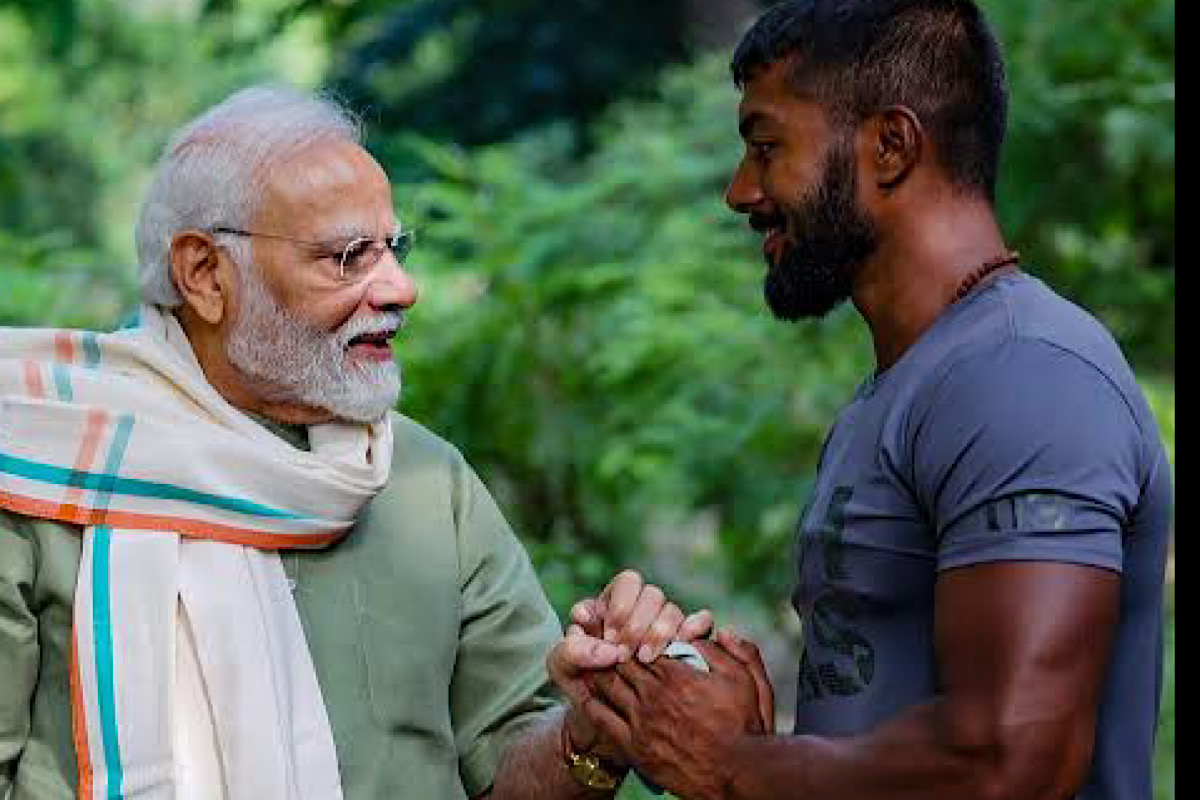FPI exodus continues; Rs 21,272 crore pulled out in first two weeks of Feb
According to data with the depositories, Foreign Portfolio Investors offloaded shares worth Rs 21,272 crore from Indian equities so far this month (till February 14).
Anew player has emerged on the Indian political scene, wielding considerable influence and reshaping traditional campaign dynamics ~ the social media influencer.

Social influencer Ankit Baiyanpuria (Photo:Instagram vedio)
Anew player has emerged on the Indian political scene, wielding considerable influence and reshaping traditional campaign dynamics ~ the social media influencer. There is a rising clout of social media Influencers in Indian politics and it calls for accountability on their part. The recent rendezvous between Prime Minister Narendra Modi and fitness influencer Ankit Baiyanpuria serves as a vivid illustration of the growing importance of these digital powerhouses in political campaigns.
Social media influencers, with their expansive reach and ability to engage diverse demographics, particularly the youth, have become indispensable in the realm of digital campaigning. Categorised as nano, micro, macro, and mega influencers based on their followers, these individuals play a pivotal role in image building, amplifying political messages, and shaping public opinion in real-time. As the 2024 general election looms large, political parties are actively courting influencers, recognising their role in shaping the narrative and influencing the over 692 million online population in the country. The BJP’s strategic meetings with influencers across regions signify a broader acknowledgment of their impact, with both major and minor influencers being pursued for their ability to connect with specific audiences.
Advertisement
The deployment of influencers in initiatives like the Bharat Jodo Yatra and the ‘Jan Samman’ video contest by the Congress underscores their role in engaging the youth. These influencers, serving as both entertainers and political commentators, bridge the gap between politicians and diverse audiences, contributing to a nuanced understanding of political perspectives. However, the growing influence of social media influencers in Indian politics comes with its share of challenges.
Advertisement
Concerns about transparency in their promotional activities and potential backlash from political parties underscore the need for accountability mechanisms. The fusion of entertainment and politics in the influencer realm often blurs the lines, raising questions about the ethical conduct of these digital power players. To address these concerns and ensure a responsible digital political landscape, a multifaceted approach is essential. Regulatory frameworks, self-regulation, and public awareness initiatives should converge to establish explicit guidelines and standards for ethical conduct among social media influencers.
The Election Commission, in collaboration with industry stakeholders, must lay down the foundations for transparent promotional activities, ensuring that influencers remain accountable for their political endorsements. In the age of digital trust and belongingness, the onus is on influencers to recognise the weight of their impact and embrace a sense of responsibility. Simultaneously, political parties must approach these collaborations with a commitment to transparency and ethical campaigning.
Only through a concerted effort can we strike a balance between the innovative power of social media influencers and the imperative for accountability in the political arena. As India navigates the intricate web of social media politics, the call for a responsible and accountable influencer ecosystem echoes louder than ever.
Advertisement